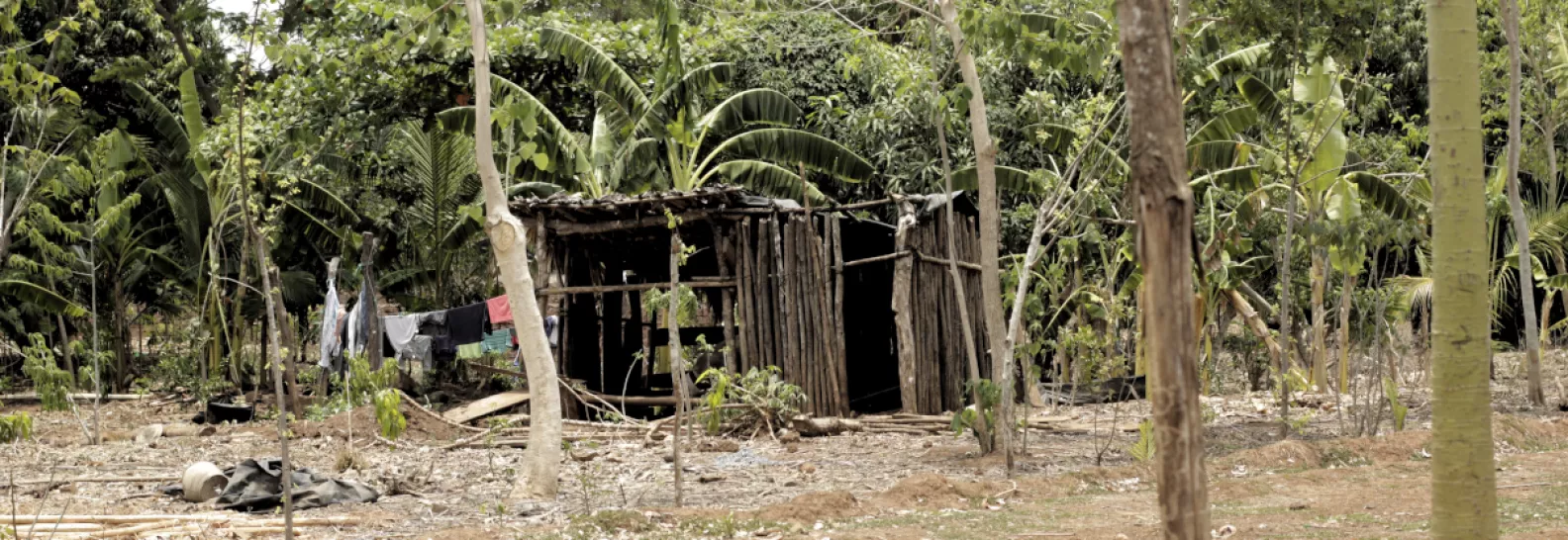
We visited several communities on the South Coast in June 2023. One of the issues that caught our attention was the fact that the majority of the population consisted of girls, boys, women and elderly people. When we asked where the young people and the men were, we were told that most of them had emigrated to work abroad. To explore this situation further, we arranged an interview with Abelino Mejía, representative of the Community Council of Retalhuleu, with whom we spoke about migration in this region.
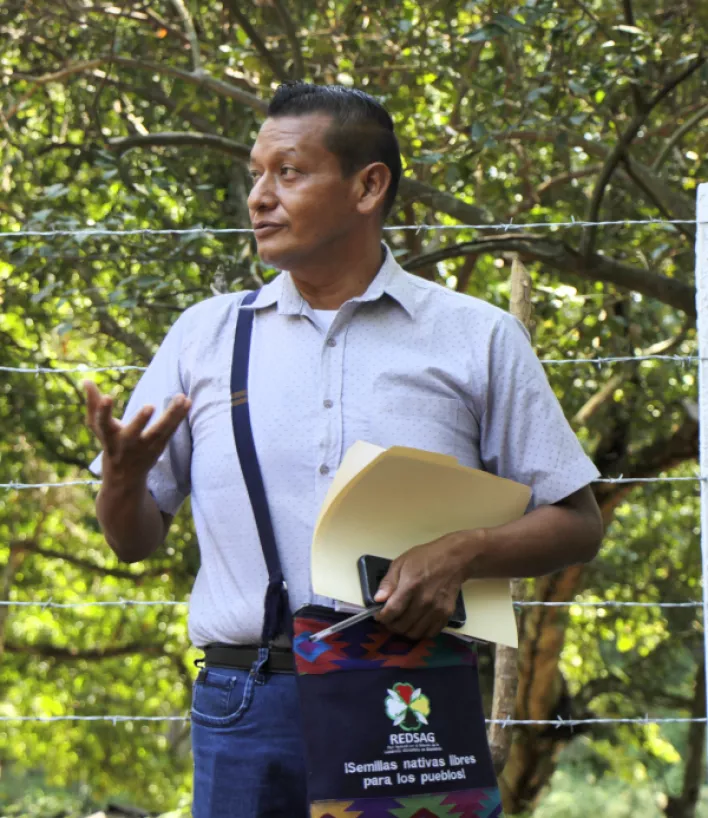
PBI: How do you assess the impact of migration on the South Coast in recent years?
Abelino: It has increased a lot over the last five years. Entire families have been forced to migrate because of the lack of opportunities, especially young people, and even children. When I say lack of opportunities, I’m referring to development, the government has not generated employment opportunities. There is no way to generate income. Although we have our little piece of land, we lack the capital to buy seeds to be able to work it, we can’t plant. And if we plant in the summer, we lack water and the harvest doesn’t come in. Sugar cane production, which is abundant in the area, does not provide employment, and if it does, it is poorly paid and exploitative. So young people and families try to migrate to have a better life, because there is no food, and if there is food they cannot cook it because they have no water. That’s why they leave.
The government will never put an end to migration without development opportunities that reach families in need. There are some projects now, but these are politicized and don’t reach those who really need them.
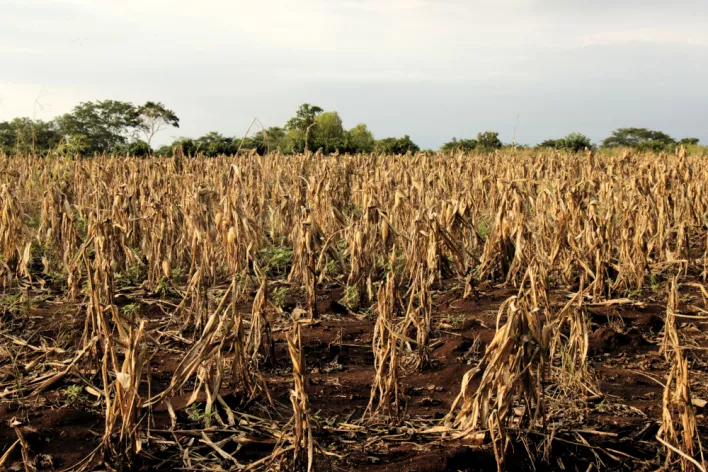
PBI: And what are the consequences of this migration for the communities?
A: There are communities where there are only women, children and the elderly. The children between seven and eight years old are the only ones left, because they start migrating from the age of nine. A lot of the time they migrate alone, others go with their mothers, because often the father has already left but has stopped sending them resources. This situation greatly affects the communities, especially their development, because the children leave without even having finished primary school. It’s not that people don’t want to stay, but that there are no opportunities.
For example, a 12-year-old girl from my family migrated. Her dream was to study and there was no possibility here. It costs between Q300 and Q500 a month, and we can’t afford that. She herself made the decision and told us so, because she knew that “here you can’t study.” Here, if you work on the [landlord’s] farm, they pay you Q50 a day, which is barely enough to eat, depending on the price of the food staples. Faced with this situation, she herself told us that she preferred to migrate, despite the risks involved. Luckily she arrived safely, and now she is fulfilling her dream of studying. This is a clear example of how children do not see a future here in Guatemala, and that is why they’re forced to migrate. They’re young but have the worries of grown-ups. Here the state does not exist, it is not present, and this causes large migration flows. We know there is a state, but it is never here with us, providing opportunities.
It hurts us when they go, when they leave the community, because they leave a void. And when only the father, or the mother and father, leave, the children are abandoned. The lack of opportunities, impoverishment and family disintegration also leads to an increase in delinquency and the formation of gangs. Because if children are not looked after by their parents, if they are left in the care of an aunt or uncle, they can’t be given the same attention, so they go out onto the streets and can get involved in drugs or vandalism. That ends up affecting the whole community.
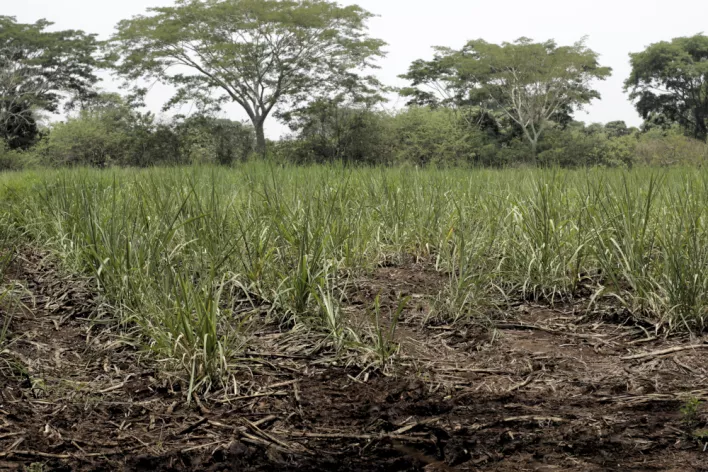
PBI: Migration is expensive. Let’s talk about the indebtedness that families suffer when they decide that someone has to migrate.
A: There are people who mortgage the deeds to their land as collateral. Travel costs between Q100,000 and Q160,000. It’s expensive, but people take the risk because there are no opportunities, there is nothing else to do. They take out a loan and the interest rates are very high, and as they cannot pay, the bank finally takes the land. There are families who have been left in the street because they couldn’t pay. I know many families who tried and now they are worse off.
In my community there are about 1,800 families and in the last two months more than 100 people have migrated. There are nine and 10 year old children who leave, they get to sixth grade and since they don’t have the opportunity to continue studying basic education, they leave. There are also people who have disappeared. For example, last year a 16 year old migrated and couldn’t make it, he disappeared, we don’t know anything about him. When he left, he said goodbye to his mother, because they did not know if they would see each other again. If they arrive, they communicate with their families, but if they don’t arrive, as in the case of this boy, he is presumed dead, because there is no more information.
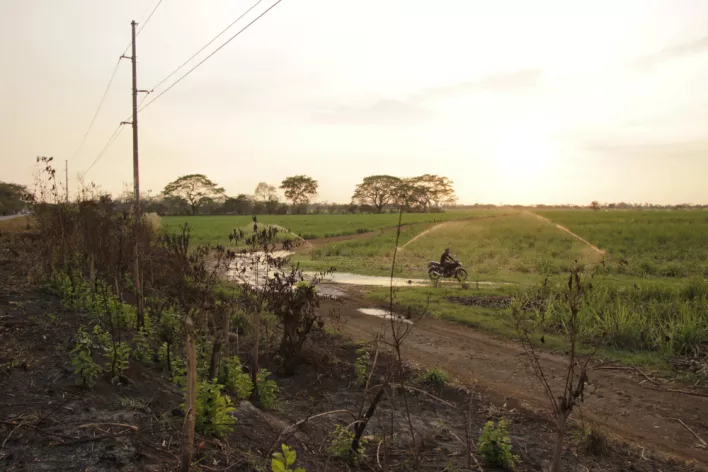
PBI: Of the 100 people from your community who migrated in the last two months, can you estimate how many reached their destination?
A: In this case, 25 people have managed to reach the United States. Another 25, more or less, are working in Mexico, because the migration returned them to that country and they have stayed there. And the others have not been able to reach their destination, they have returned and their struggle continues. Some are now in El Salvador, selling peanuts or sweets. Others migrated to Belize because there are jobs there, there is the orange harvest. Others are outside the department of Retalhuleu, selling their goods to see how they can pay off their debts and support their families. Despite these situations, the families try again because there are no opportunities here.
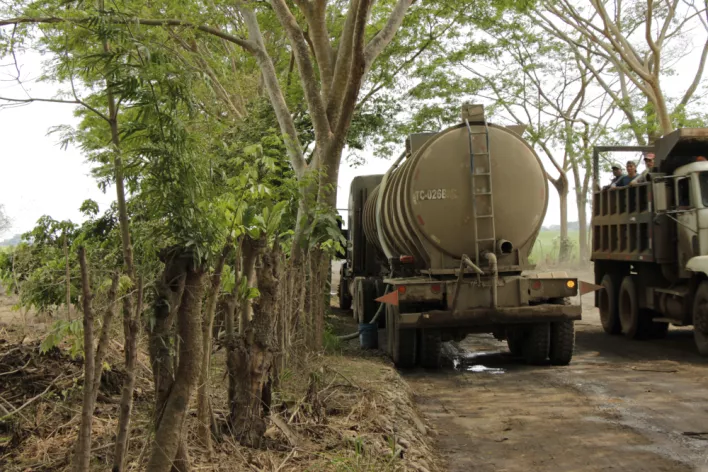
PBI: Do you know about the conditions in which migrants live?
A: They are precarious conditions. My brother, who migrated, shares a room with five or six people so that he can get by economically, and he doesn’t spend money. For example, he doesn’t go out to dances because otherwise he spends money. The same goes for the other comrades who have left and with whom he shares a room. They draw lots for beds. My brother tells me that he has to sleep on a sofa, every other night. He works a day shift and a night shift, so they take turns sleeping. If they paid for the room alone, then they wouldn’t be able to pay the debt.
They go with the idea of at least paying off their debt in three or four years. Then they have to spend another four years working to be able to buy a small piece of land, or build a house, or have a cow. Because that’s the idea, to raise capital to have their animals or to start farming, to make progress. We are talking about a period of eight or 10 years before they can return. But if during that period the family disintegrates, they don’t come back. Migration creates very critical situations, because it is very difficult for the family circle. Most of those who migrate don’t return, they settle there and send for their father or mother to live with them. They get used to that life, because the food is better and there are more job opportunities. But there are those who do return, but if they haven’t accumulated enough capital, they have to migrate again. It is a very difficult situation.
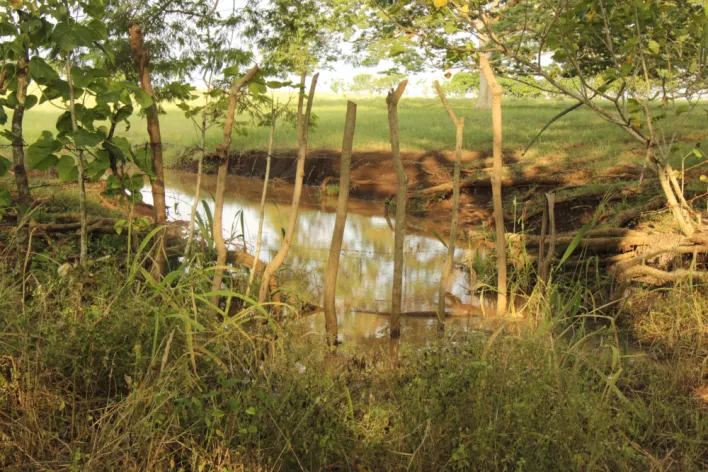
PBI: Do you think there is a link between the expansion of sugar mill activities in the region and the increase in migration?
A: When there was no sugar cane, there was a better economy, because it rained, the crops were not lost. Families were able to feed themselves. Families didn’t start migrating for fun, but for lack of food and water, that’s why there is migration. In the past, few people migrated, not like now. Imagine, if in the last two months 100 people have migrated from my community, what is happening in other communities that are in a more difficult situation than mine. I say more difficult because my community is no longer surrounded by sugar cane, so we have more water, so we can produce more food. Before there was not so much migration because there was production. In the summer we planted watermelon, cucumber, chilli, papaya. There was community work that was paid at Q100 or Q125 a day. But the farmers stopped producing because the sugar cane took all the water, and if there is no water there is no production. So people migrate because they don’t have enough to feed their children. They don’t even have enough to give them an education, so they are forced to migrate.
There are communities that have no water at all, that have to buy bags of water every day because there are no more wells, they have dried up. And the little water they have is bad, they can’t drink it. So that’s where there is more migration, because they have to find a way to feed their families. There are houses where only the grandmother and grandfather live, because everyone else has migrated. They all migrated because there is no way to generate income for the family to have food, because even if they plant seeds, the gardens dry up. These families live on remittance money. There are women who go to Retalhuleu to wash clothes, or who go to other departments, that’s migration, isn’t it? They have to see how they earn to support their families. This migration situation really is hell.
As for the sugar cane, although it generates employment, is not for the people who live here. They bring their crews from Quiché. Brothers from Quiché who they exploit because they pay them Q40, Q45, Q50 a day, and if they give them food they deduct it. That is why we have called them the sugar mills of death, because there are people who die from the chemicals, fertilizers or who are burnt during harvest time. These are also people who come out of necessity, they come because they only have their little house, but they have no land to work on, they have no way to produce.
The sugar mills come to screw us over, because we have land but no water for production. This is the model that the Guatemalan state is imposing on us. Nobody has consulted us if we want this type of project in our communities. If the state were present here, guaranteeing opportunities, we could stop migration.
